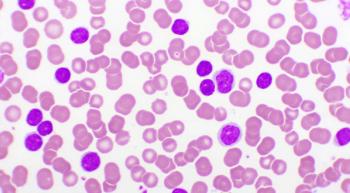
Findings from a phase 3 trial demonstrated that half of patients with FLT3-ITD-mutant acute myeloid leukemia and detectable minimal residual risk derived a relapse-free survival benefit with Xospata.

Findings from a phase 3 trial demonstrated that half of patients with FLT3-ITD-mutant acute myeloid leukemia and detectable minimal residual risk derived a relapse-free survival benefit with Xospata.

Iclusig plus reduced-intensity chemotherapy led to improved outcomes for patients with Philadelphia chromosome (Ph)–positive acute lymphoblastic leukemia, and should be the new standard of care, one expert said.

Lasting guilt gets no one anywhere — especially when it comes to cancer.

Acute myeloid leukemia and myelodysplastic syndrome may affect nutritional status, and more work is needed to ensure that patients are getting the food intake that they need, researchers found.

Looking back on my experiences with leukemia and with alcoholism, I realized that the 12 steps of Alcoholics Anonymous can be applied to life with cancer.

A decade ago, I was diagnosed with acute myeloid leukemia and underwent aggressive chemotherapy and an allogenic stem cell transplant. Though I still have complications related to my cancer, I’m thankful for what I still have.

Throughout my cancer experience — and my entire life — there were many people who came in and saved my life.

After leaving the hospital, I craved the security and support my cancer care team provided me.

After going through cancer, I better recognize my triggers for heightened anxiety.
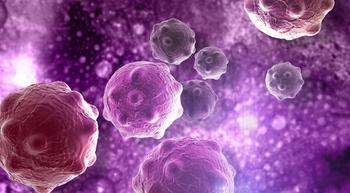
Regarding overall survival, allogeneic HCT did not have a benefit over consolidation chemotherapy in patients with intermediate-risk disease.

After undergoing a bone marrow transplant for my leukemia, I started to have some odd symptoms, and sent wacky texts to my loved ones.

The novel targeted radiotherapy iomab-B led to the disappearance of all signs of cancer and an improvement in event-free survival compared with physician’s choice of treatment.

I’ve been watching a YouTube channel about Borneo orangutans, and realized that these animals remind me of myself after cancer.

From ballooning ankles to rashes, there were multiple chemotherapy side effects that I had to deal with — here’s how I did it.

As a recovering addict, I was nervous about the painkillers that would come alongside my cancer treatment, but I soon learned that they would be needed.

“Was I OK with dying? Would I still be there for my dog? Can I still smoke?” — all these thoughts entered my mind when my oncologist told me that I had leukemia.

The FDA granted a priority review to the oral drug quizartinib for the treatment of a form of acute myeloid leukemia, one of the more common types of leukemia.

After breaking 20 years of sobriety, I received even worse news: my leukemia had relapsed, and I’d need a bone marrow transplant. Thankfully, my family and treatment team lifted me up during this difficult time.
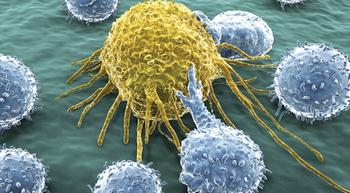
The Food and Drug Administration put a full clinical hold on a study of the novel drug FHD-286 in patients with acute myelogenous leukemia and myelodysplastic syndrome after study data showed an increase in a potentially fatal side effect.
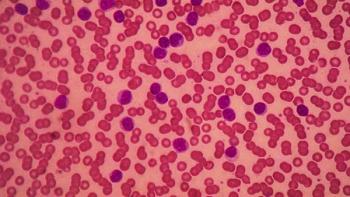
Adding the investigational cancer drug lanraplenib to Xospata, if found to be effective, may broaden treatment options for patients with relapsed/refractory FLT3-mutated acute myeloid leukemia.

Enrollment has begun on a phase 3 clinical trial assessing the safety and efficacy of an investigational cell therapy in patients with acute myeloid leukemia, acute lymphocytic leukemia and myelodysplastic syndromes.
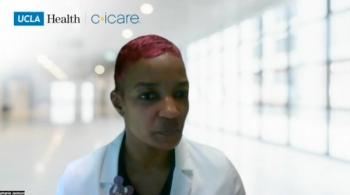
Patients with cancer are encouraged to learn more about their disease from evidenced-based sources and not “Dr. Google.”
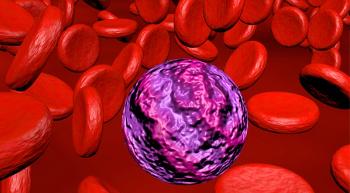
The findings support future studies of assessing the safety and efficacy of the novel drug-chemotherapy combination as a maintenance strategy following stem cell transplantation across a range of blood cancers, according to the study authors.

Tibsovo plus Vidaza led to survival benefit for patients with IDH1-mutant acute myeloid leukemia, according to findings from the AGILE clinical trial.

Treatment with a novel monotherapy in a patient with relapsed/refractory acute myeloid leukemia was effective enough that a successful, as indicated by a significant reduction in bone marrow blasts, stem cell transplant was performed.